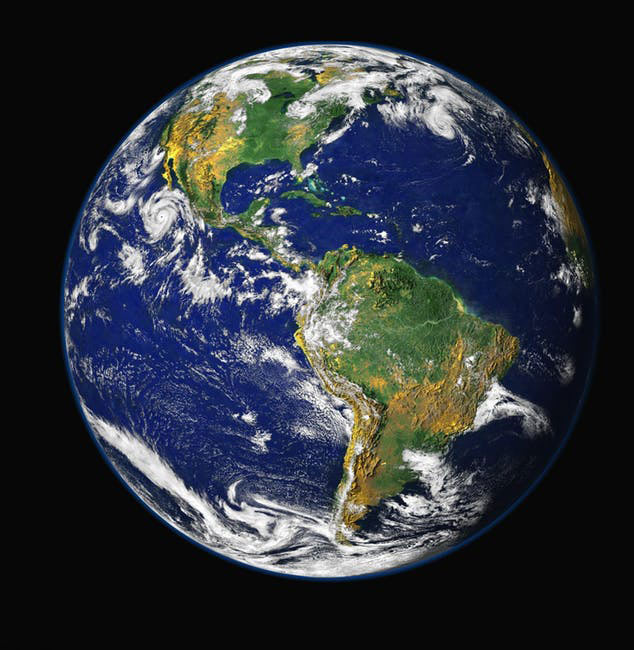Scientific and technological progress over the past decade has made a huge leap. The United Nations is concerned about the current situation with sustainable development. The recently published facts should make humanity think and perhaps even change the vector of development.

1. Fresh water and electricity
 More than 1 billion people still do not have access to fresh water. Every fifth person in the world still does not have access to electricity.
More than 1 billion people still do not have access to fresh water. Every fifth person in the world still does not have access to electricity.
2. Level of the World Ocean
 The average World Ocean level has risen by 19 centimeters from 1901 to 2010. This is due to the warming and melting of ice.
The average World Ocean level has risen by 19 centimeters from 1901 to 2010. This is due to the warming and melting of ice.
3. Sanitation and communication
 Every third person does not have access to basic sanitation services, such as toilets or baths. About 1.5 billion people still do not have access to reliable telephone services.
Every third person does not have access to basic sanitation services, such as toilets or baths. About 1.5 billion people still do not have access to reliable telephone services.
4. Depletion of land and slums
 In 2008, degradation and depletion of land affected 1.5 billion people around the world. Besides, 828 million people live in the slums today, and this number continues to grow.
In 2008, degradation and depletion of land affected 1.5 billion people around the world. Besides, 828 million people live in the slums today, and this number continues to grow.
5. Medicine and Pharmaceutics
 80% of people living in rural areas of developing countries rely on traditional medicine. To provide basic medical care, they use plant-based medicines. At the same time, AIDS is currently the leading cause of death among adolescents in Africa.
80% of people living in rural areas of developing countries rely on traditional medicine. To provide basic medical care, they use plant-based medicines. At the same time, AIDS is currently the leading cause of death among adolescents in Africa.
6. Hunger and Education
 66 million children of primary school age in developing countries attend classes hungry. As of 2014, a total of 121 million children of primary and secondary school age in the world did not attend school. As for the countries affected by conflicts, in 2011, 50% of all children stopped attending primary school there.
66 million children of primary school age in developing countries attend classes hungry. As of 2014, a total of 121 million children of primary and secondary school age in the world did not attend school. As for the countries affected by conflicts, in 2011, 50% of all children stopped attending primary school there.
7. Energy saving
 One-fifth of the world’s final energy consumption in 2013 came from renewable energy sources. If people around the world switched to energy-saving light bulbs, about $120 billion would be saved every year.
One-fifth of the world’s final energy consumption in 2013 came from renewable energy sources. If people around the world switched to energy-saving light bulbs, about $120 billion would be saved every year.
8. Growth of unemployment
 Global unemployment is increasing every year. For example, in 2007 there were 170 million unemployed men, and in 2012, only 5 years later, that number reached 202 million.
Global unemployment is increasing every year. For example, in 2007 there were 170 million unemployed men, and in 2012, only 5 years later, that number reached 202 million.
9. Food spoilage
 It is estimated that one-third of all food produced is simply lost every year. It rots in people’s garbage cans (in developed countries, they rarely eat the whole food) or is spoiled in stores without being sold.
It is estimated that one-third of all food produced is simply lost every year. It rots in people’s garbage cans (in developed countries, they rarely eat the whole food) or is spoiled in stores without being sold.
10. Climate change
 Energy is the dominant factor for climate change. It is thanks to the generation of energy that about 60% of the total amount of greenhouse gas emissions is produced.
Energy is the dominant factor for climate change. It is thanks to the generation of energy that about 60% of the total amount of greenhouse gas emissions is produced.
11. Infant mortality
 Only half of women in developing regions will receive the recommended amount of medical care during pregnancy. It is then needless to even mention the infant mortality rate in underdeveloped countries.
Only half of women in developing regions will receive the recommended amount of medical care during pregnancy. It is then needless to even mention the infant mortality rate in underdeveloped countries.










